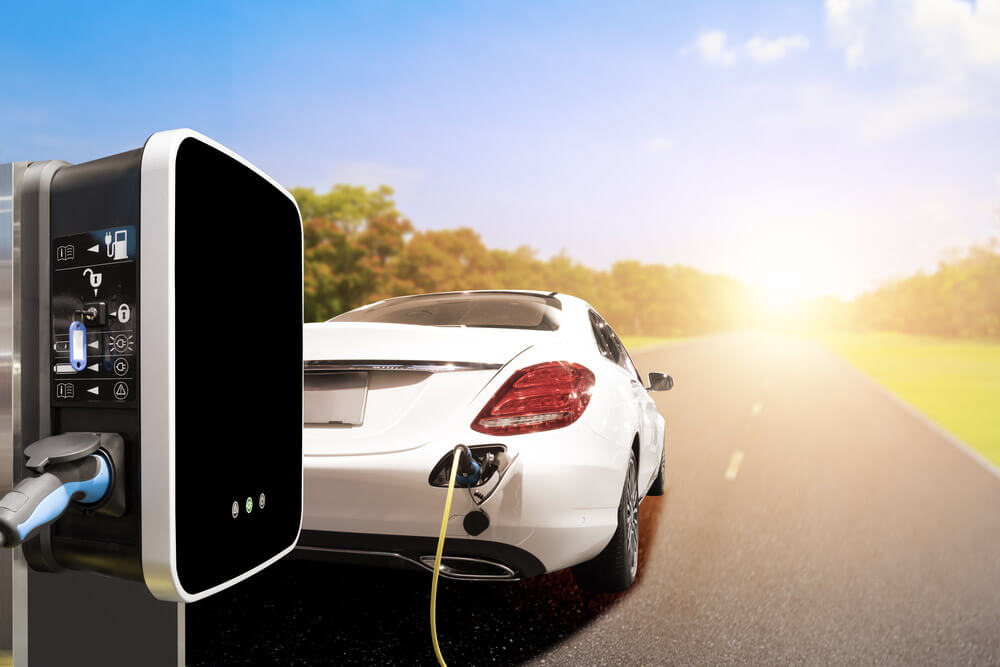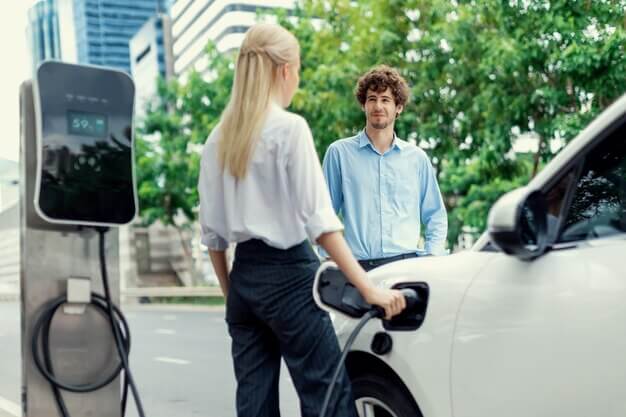Pondering the acquisition of an electric car? Marvelous! Deliberating the environmental ramifications of your choices is vital, and electric vehicles provide a splendid means to mitigate your carbon footprint. Yet, does their economic sustainability hold up?
Electric cars, as a nascent technology, raise some concerns about their long-term feasibility. The most conspicuous issue lies in battery longevity. Unlike traditional gasoline-powered vehicles, most electric cars can merely traverse 100-200 miles on a single charge. This disparity could potentially impede the burgeoning growth of the electric car market, as people may find the limited travel range restrictive.

Another salient concern is infrastructure. Widespread adoption of electric cars necessitates an augmented presence of charging stations nationwide. Presently, this infrastructure needs bolstering. An inevitable transformation awaits if electric cars become ubiquitous. Hence, can electric vehicles ensure economic sustainability? The verdict remains uncertain as we observe the unfolding events over time.
Have you seen our amazing article on calculating your home improvement loan? It’s quite useful! But first, let us discuss electric vehicles.
Table of Contents
ToggleUnraveling the Enigma of Electric Vehicles

Now, what exactly are electric cars? Electric vehicles derive power from electricity rather than relying on gasoline or diesel. Diverse brands offer an array of sizes and shapes to choose from.
Electric vehicles have graced the scene for some time, but their surge in popularity transpired more recently. The driving force behind this lies in the growing awareness of climate change and the imperative to take action. People seek solutions to shrink their carbon footprint, and electric cars provide an appealing answer.

The Mechanism of Electric Cars
Ever wondered about the inner workings of electric cars? These vehicles harness electricity generated from diverse sources, including fossil fuels, nuclear energy, and renewable sources like solar and wind power. The clean nature of electricity persuades an increasing number of people to opt for electric cars over their gasoline counterparts. Not only are they eco-friendly, but also more efficient, boasting superior power generation and cost-effectiveness in operation and maintenance.
Alas, the infrastructure for electric vehicles necessitates further development. A wider network of charging stations is imperative to witness a greater adoption of electric cars. Nonetheless, as the popularity of electric vehicles escalates, this deficiency is likely to be rectified soon.
Electric Cars: Pioneering Economic Sustainability
One may wonder whether electric cars are indeed sustainable for the economy, given their reliance on electricity derived from fossil-fuel-based power plants. The truth, however, belies this skepticism, as electric vehicles prove far more economically sustainable than their gas-powered counterparts. Their superior efficiency results in overall reduced electricity consumption. Moreover, their absence of reliance on gasoline translates into a reduced contribution to pollution and global warming.
Additionally, as manufacturing costs for electric cars plummet and battery technology advances, these vehicles are becoming increasingly affordable and popular. Thus, it is clear that electric cars are not only suitable for the economy but also beneficial for the environment.
Electric Cars: Not without Drawbacks
Despite the merits of electric cars, the question of their economic sustainability remains multifaceted. On the one hand, electric vehicles boast zero emissions, a boon for the environment. Conversely, their manufacturing entails substantial energy expenditure, often sourced from fossil fuels.
Moreover, replacing electric car batteries can prove costly and time-consuming. The limited availability of charging infrastructure also poses challenges in supporting a burgeoning fleet of electric cars. While some issues can be resolved, the debate over their complete economic sustainability persists. Nonetheless, electric vehicles signify a positive stride towards embracing more sustainable transportation options.
The Road Ahead: Electric Cars and the Future of Transportation
Are electric cars the definitive future of transportation? Many would affirm this belief, yet doubts linger about their economic impact. Indeed, electric vehicles represent the future of transportation, especially in light of global emissions targets and heightened awareness of the perils posed by conventional gasoline and diesel vehicles. People are adopting electric cars as a means to curtail their carbon footprint.
However, this trajectory raises pertinent questions for the automotive industry. How will established automakers adapt to this evolving landscape? In this blog article, we delve into the potential growth of the electric vehicle market and the opportunities and challenges that lie ahead for car manufacturers.
Electric vehicle sales, while growing, remain a minute fraction of global automobile sales. In 2021, over six million electric vehicles were sold, accounting for roughly 8% of new automobile sales worldwide. Notwithstanding the upward trend, it may take time to attain substantial market share, and various factors contribute to this moderate growth.
Currently, electric vehicles still command a higher price than conventional gasoline cars, primarily due to expensive batteries. Additionally, inadequate charging infrastructure in many regions inhibits widespread adoption. Consequently, education about electric cars is essential, especially in developing countries.
China leads the global electric vehicle market, followed by the US and Europe. However, the number of electric vehicles on the roads remains a small fraction of the overall automotive fleet. Significant transformation lies ahead for the auto industry, as the traditional model of selling and maintaining cars no longer applies to electric vehicles, which require less maintenance and enjoy extended lifespans.
Comparing Car Prices in 2022
By 2022, electric cars are projected to be more affordable than their gasoline counterparts. Tesla forecasts that the cost of its Model 3 sedan will align with that of gas-powered cars. As battery technology advances, the prices of electric vehicles will further decrease.
This affordability is attributed, in part, to government subsidies and tax breaks for electric car ownership, alongside declining battery and charging infrastructure costs. With their environmentally friendly and economically viable nature, electric cars stand as an advantageous choice for both the planet and the economy.
While electric cars boast both advantages and drawbacks, they harbor the potential to protect the environment and invigorate the economy. As the adoption of electric vehicles grows, the electrical grid will require upgrading, engendering job creation. Embracing renewable energy sources like solar and wind power will only further augment their environmental appeal.
Amidst the pursuit of eco-friendly transportation, electric vehicles emerge as a commendable step forward. Nevertheless, certain challenges remain, necessitating continued improvements. Overall, electric cars bear an array of benefits and can significantly contribute to environmental preservation and economic prosperity. The quest for a sustainable future continues. What are your thoughts?














